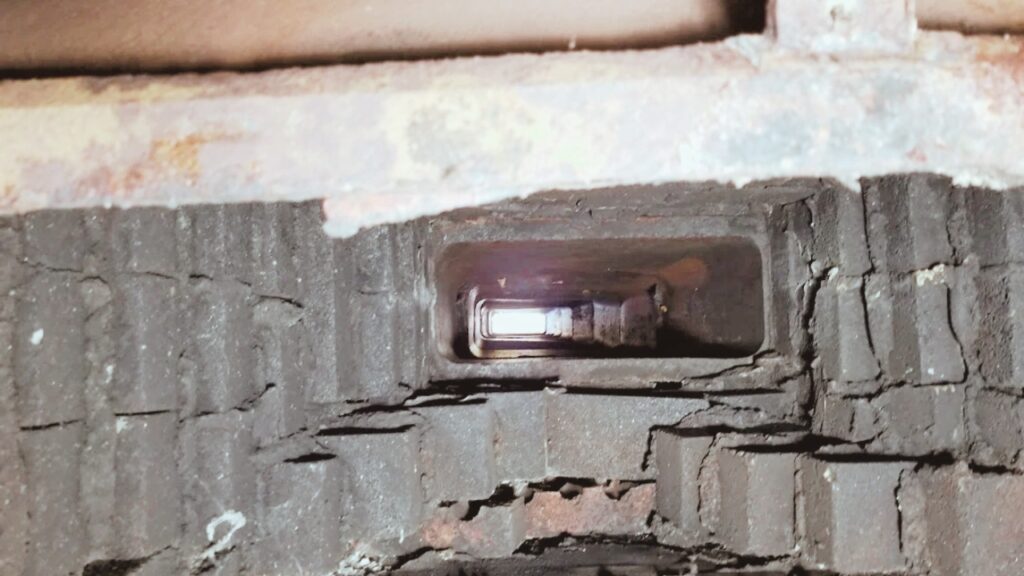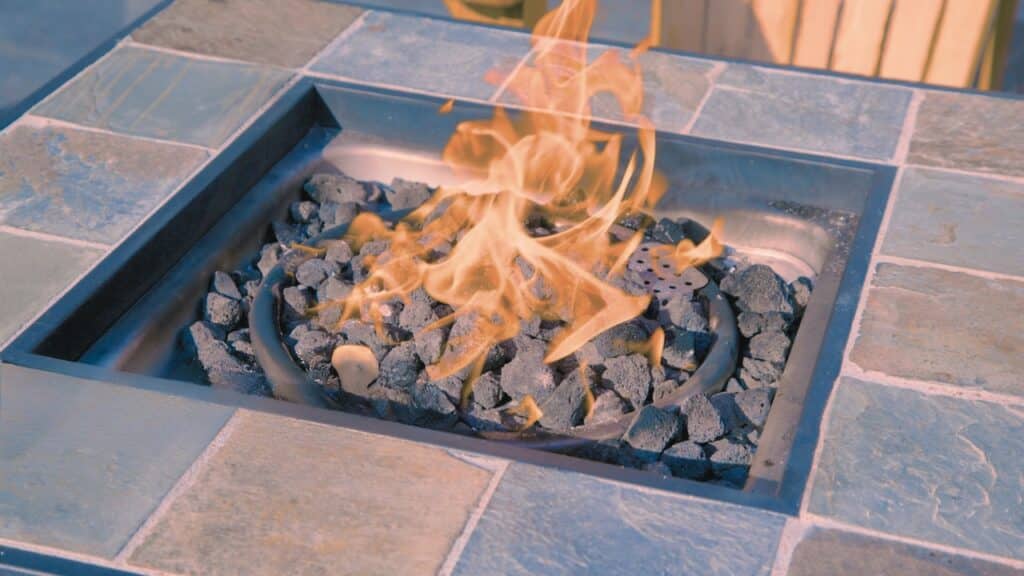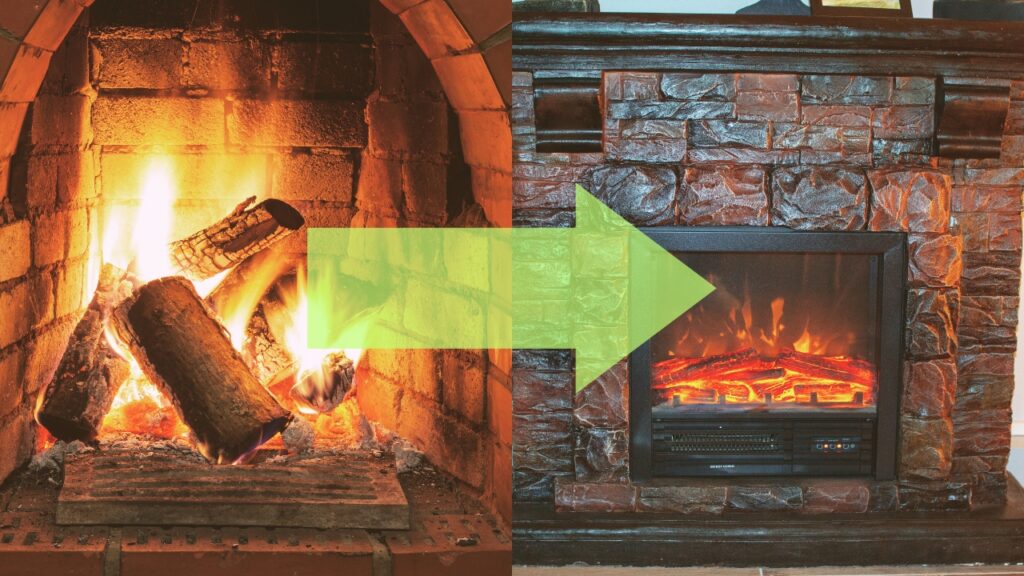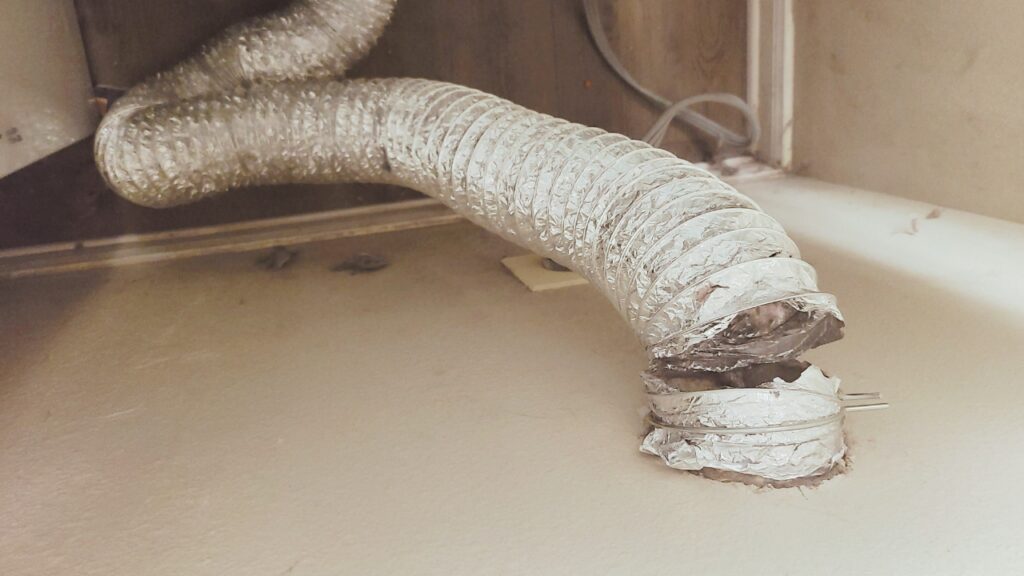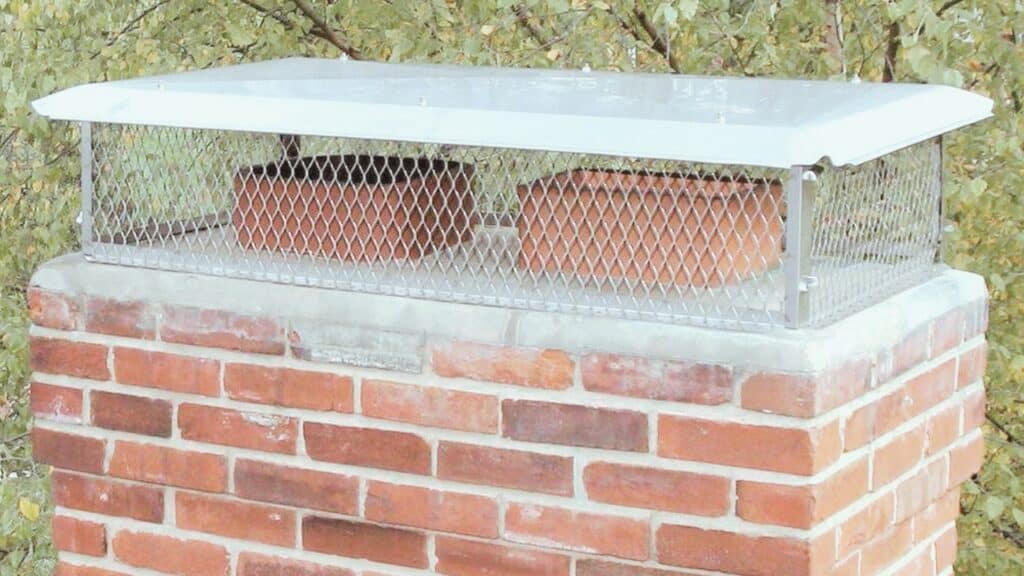It’s a chilly evening, and you’re all snuggled up by the fireplace with your loved ones. The warmth of the fire and the comforting crackling sounds make for a perfect cozy night. But did you know a dirty chimney could turn this dreamy scenario into a nightmare? That’s right!
A chimney that hasn’t been cleaned properly could lead to serious health hazards such as carbon monoxide poisoning. Shockingly, the Centers for Disease Control and Prevention (CDC) reports that every year, at least 420 individuals in America lose their lives due to unintentional CO poisoning.
So, if you wonder, “Can a dirty chimney make you sick?” the results can be fatal! To help keep your family safe, this guide offers three essential facts about chimney cleaning that can save your life.
How a Dirty Chimney Makes You Sick
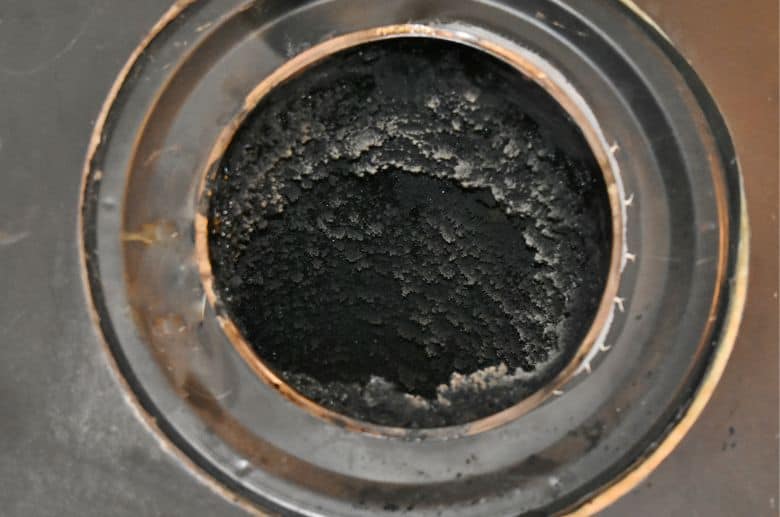
A chimney can be a breeding ground for disease-causing microbes and fungi. When left uncleaned, creosote, a chemical compound that is the by-product of burning wood, can accumulate and release harmful toxins into the air and other bacteria that can make you sick. According to the Environmental Protection Agency (EPA), these toxins can cause various respiratory diseases, such as bronchitis, asthma, and cancer!
That’s not all. The following can also happen if you don’t maintain a clean chimney:
Carbon Monoxide Poisoning
Carbon Monoxide poisoning can be a deadly consequence of having a dirty chimney. CO is an odorless, colorless gas that can cause serious health issues if it accumulates in your home.
When the combustion process isn’t working correctly, as in a poorly maintained chimney, the CO can seep into your home and lead to dizziness, headaches, nausea, and even death.
——
Do You Need to Hire Chimney & Fireplace Expert?
Get free quotes from qualified experts near you. No commitment required!
——
Symptoms of Carbon Monoxide Exposure
- Shortness of Breath: When exposed to a large amount of CO, you can experience difficulty breathing.
- Nausea and Vomiting: Constant exposure can lead to nausea and vomiting.
- Dizziness or Lightheadedness: Feeling lightheaded can be a sign of CO poisoning.
- Headache: If your headache persists even after leaving the area, it can be a sign of CO poisoning.
- Eye Irritation: CO can cause eye irritation and even blur vision.
- Skin Irritation: The other telltale sign of CO poisoning can be itchy, irritated skin.
These are just a few of the physical signs that can indicate carbon monoxide poisoning. Don’t take any chances with your health: have your chimney checked and cleaned by a professional at least once yearly.
Respiratory Issues
It is common knowledge that a dirty chimney can be dangerous, but many people are unaware of the serious respiratory issues it can cause. Respiratory problems can range from minor to severe, including asthma, bronchitis, COPD (Chronic Obstructive Pulmonary Disease), and cancer.
Here are some of the respiratory problems caused by a dirty chimney:
- Asthma: The particles released from a dirty chimney can trigger asthma symptoms, including wheezing, coughing, and difficulty breathing.
- Bronchitis: Accumulated soot and creosote released from a neglected chimney can irritate the bronchial tubes, prompting inflammation and bronchitis.
- Pneumonia: The buildup of harmful particles in the air can also increase the risk of developing pneumonia, a lung infection that can cause coughing, fever, and difficulty breathing.
- Chronic Obstructive Pulmonary Disease (COPD): Long-term exposure to a dirty chimney can increase the risk of developing COPD, a progressive lung disease that makes breathing hard. COPD can cause coughing, wheezing, and shortness of breath.
- Lung Cancer: Exposure to the harmful particles released from a dirty chimney can also increase the risk of developing lung cancer. Soot and creosote contain carcinogens that can damage the DNA in lung cells and lead to cancer.
With the help of a professional chimney cleaning service, you can enjoy a safe home and peace of mind.
Asthma and Allergies
If a chimney is not thoroughly cleaned, it can release ash, dust, and other debris into the atmosphere resulting in indoor air contamination. A thick accumulation of creosote and soot within the chimney can harbor particulate matter. This mix contains microscopic particles such as dust, pollen, or other allergens that may be hazardous to your health.
When these particles are released into the air, they can be inhaled into the lungs and cause irritation and inflammation, which can worsen asthma symptoms.
Furthermore, the particulate matter can worsen allergy symptoms such as sneezing, nasal congestion, and watery eyes. And if that’s not enough, the moisture that can accumulate in a dirty chimney can also promote the growth of mold and mildew.
Mold spores are common indoor allergens that can trigger allergic reactions and cause respiratory issues like asthma. When mold spores are released into the air, they can be inhaled into the lungs and cause irritation and inflammation.
Symptoms of Dirty Chimney
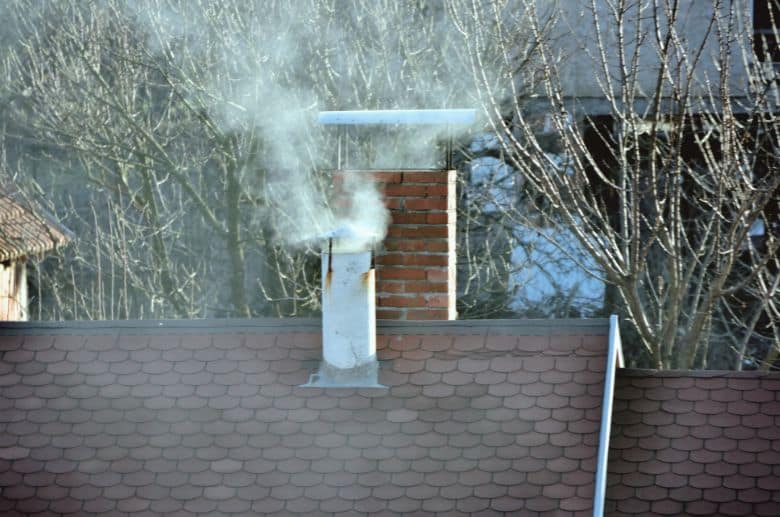
It’s crucial to recognize the symptoms of a dirty chimney to prevent some of the issues addressed above. To help you out, here are some common symptoms of a dirty chimney:
Excessive Soot and Creosote Buildup
One of the most apparent signs of a dirty chimney is the presence of excessive soot and creosote buildup. Soot is a black, powdery substance that forms when incomplete combustion occurs, while creosote is a sticky, tar-like substance that develops when wood burns.
Both can clog the chimney flue, reducing airflow and increasing the risk of a chimney fire.
——
Do You Need to Hire Chimney & Fireplace Expert?
Get free quotes from qualified experts near you. No commitment required!
——
Difficulty Starting a Fire
If you’re having trouble starting a fire or notice that the fire in your fireplace or stove is burning poorly, it could be a sign of a dirty chimney. A clogged chimney prevents proper ventilation, making getting enough air into the fireplace or stove challenging to ignite the wood.
Unpleasant Odor
A dirty chimney can emit a musty, smoky odor permeating the house. This unpleasant smell can also harm your health, causing respiratory problems and aggravating allergies and asthma.
Smoke Coming Back into the House
If you notice smoke coming back into the house when you light a fire in your fireplace or stove, it could be a sign of a dirty chimney. A clogged chimney prevents smoke from escaping correctly, causing it to flow back into the house.
This is not only unpleasant but can also be dangerous, as smoke inhalation can cause respiratory problems and even carbon monoxide poisoning.
Preventing Carbon Monoxide Poisoning
You now understand the signs and dangers of a dirty chimney. Fortunately, you can take preventative steps to ensure your chimney is clean and safe. Below, you can find some tips to help prevent carbon monoxide poisoning:
Installing a Carbon Monoxide Detector
One of the most effective ways to prevent CO poisoning is to install a carbon monoxide detector in your home. These devices work by detecting CO levels in the air and sounding an alarm when they reach dangerous levels. Be sure to place a detector in or near every bedroom and on every level of your home, including the basement.
Testing your carbon monoxide detector regularly and replacing the batteries at least once a year is also essential. If the alarm goes off, evacuate your home immediately and call emergency services.
Hiring a Professional Chimney Sweep
Regular chimney maintenance is crucial for preventing CO poisoning and other problems associated with a dirty chimney. Over time, creosote and other debris can accumulate inside the chimney, blocking airflow and causing dangerous gases to back into your home.
A professional chimney sweep can inspect and clean your chimney, removing blockages and ensuring it works correctly.
Inspecting and cleaning your chimney at least once a year is recommended, especially if you use your fireplace or stove frequently. A professional chimney sweep will also be able to identify any potential issues with your chimney and provide recommendations for repairs or upgrades to keep your home safe.
Conclusion
A dirty chimney can cause respiratory issues and even carbon monoxide poisoning. Therefore, inspect your chimney regularly and hire a professional sweep to clean it. Installing a carbon monoxide detector can also protect you from the dangers of CO poisoning.
So, can a dirty chimney make you sick? Absolutely! Protect yourself by taking preventive measures, and don’t forget to get regular chimney cleanings.

